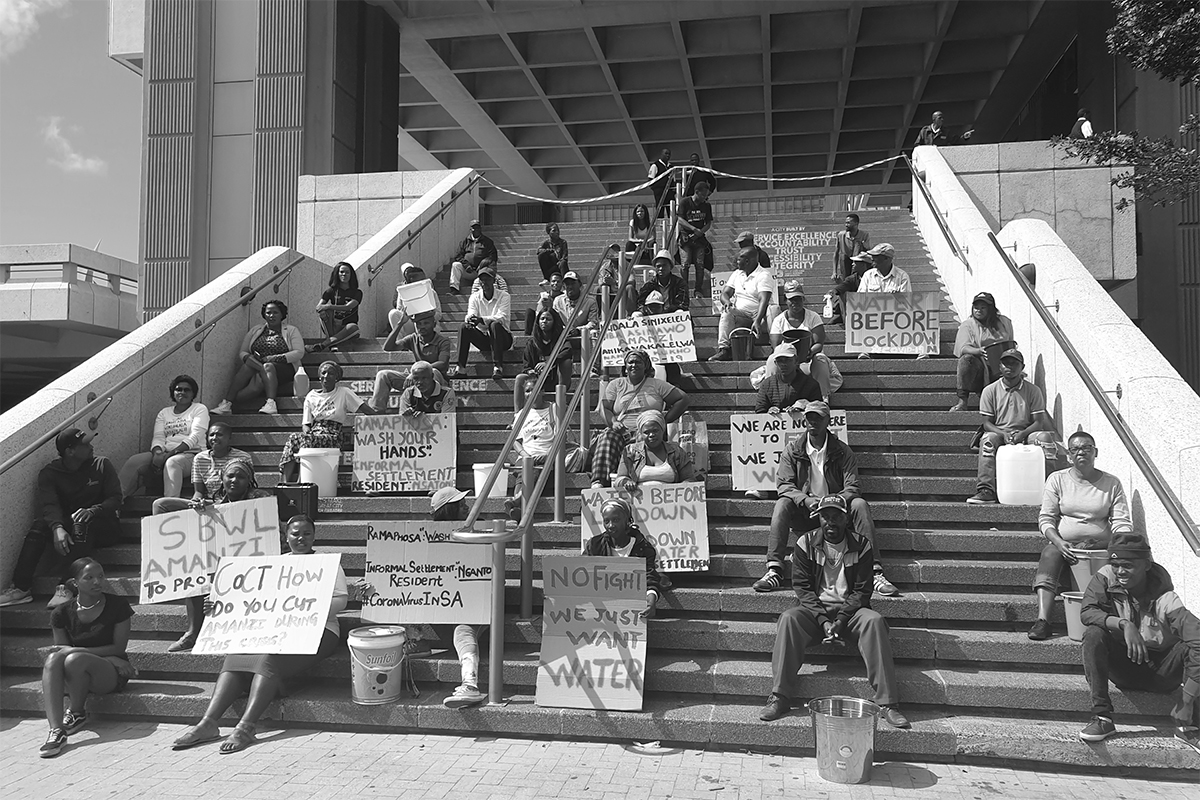The United Nations Office of the High Commissioner for Human Rights - Regional Office for Southern Africa, in collaboration with the Centre for Human Rights, University of Pretoria (UP), is convening a webinar on the right of peaceful assembly in Southern Africa in the context of COVID-19.
Webinar
Tuesday 9 June 2020
Webinar (Zoom)
11:00 – 13:00 SAST / 10:00 – 12:00 WAT / 12:00 – 14:00 EAT
Theme: Right of peaceful assembly in Southern Africa in the context of COVID-19
Moderator: Ms Abigail Noko
Regional Representative, United Nations Office of the High Commissioner for Human Rights, Regional Office for Southern Africa
Panellists:
- Mr Clément Nyaletsossi Voule
UN Special Rapporteur on rights to freedom of peaceful assembly and of association - Prof Christof Heyns
Professor of Law, UP; Member of the UN Human Rights Committee and Rapporteur for General Comment No. 37 on the right of peaceful assembly - Dr Makanatsa Makonese
Deputy Chief of Party for the American Bar Association - Advancing Rights in Southern Africa (ARISA) Programme - Prof Stuart Casey-Maslen
Honorary Professor, UP, and Manager of www.rightofassembly.info and www.policinglaw.info - Ms Priscilla Mbanga
Director, Monitoring and Inspections, Zimbabwe Human Rights Commission
Background
Recently, the World Health Organisation announced that COVID-19 will be with us for a long time. Its outbreak has already changed people’s lives in myriad ways and continues to pose unprecedented challenges on the enjoyment of human rights. Measures adopted by States to contain and manage the spread of COVID-19 have resulted in a proliferation of varying restrictions that affect the exercise of fundamental freedoms and human rights. Many States have adopted emergency measures including lockdowns, curfews and travel bans. Restrictions on movement and gatherings have meant that people cannot physically meet to collectively express themselves through non-violent gatherings including demonstrations, meetings, processions, strikes and rallies. The impact of these restrictive measures on people’s livelihoods coupled with cases of excessive use of force by law enforcement personnel has resulted in tensions and limitations of access to key services. There have been protests against COVID-19 measures that are likely to increase as people’s livelihoods continue to be negatively impacted by COVID-19 restrictive measures amidst a climate of uncertainty regarding their temporal nature. Furthermore, a number of countries in the region are scheduled to hold elections amidst regulations that limit assembly.
While restrictions on the right to peaceful assembly based on public health concerns are justified, if they, inter alia, meet the requirements of necessity and proportionality, there is also a risk that the public health emergency presented by COVID-19 could infringe on the rights of individuals to voice their grievances through peaceful assemblies. This includes clamping down on demands for accountability, improved social service delivery and expanding democratic space. Nevertheless, the holding of public gatherings and protests in the exercise of the right to peaceful assembly in the context of COVID-19 requires that individuals adhere to health protocols to prevent its spread. Therefore, the offline exercise of the right to peaceful assembly in the context of COVID-19 requires a delicate balancing act between the rights of those that seek to benefit from it and the obligations of States to protect people from a health hazard. At the same time, COVID-19 is presenting new opportunities to assemble online, but the limits and opportunities are still being defined. Furthermore, the limited access to the internet, including the cost of internet data in some countries, risks excluding those living in poverty.
Objective of the webinar
- Unpack the content of the right to peaceful assembly and its public health limitations.
- Understand the impact of COVID-19 on the exercise of the right to peaceful assembly.
- Identify the obligations of States in guaranteeing the right to peaceful assembly and protecting individuals from COVID-19.
- Identify key recommendations and good practices with respect to peaceful assembly and COVID-19.
Issues to be discussed
- Obligations of States and convenors of protests/political rallies in holding gatherings and protecting attendees from COVID-19.
- Options for the effective exercise of the right to peaceful assembly in the context of COVID-19, including the use of online platforms.
- Good practices in addressing threats against the right to peaceful assembly on the pretext of combating COVID-19.
- Innovative ways to ensure participation in public affairs including the conduct elections and other democratic processes in the context of COVID-19.
For more information, please contact:


